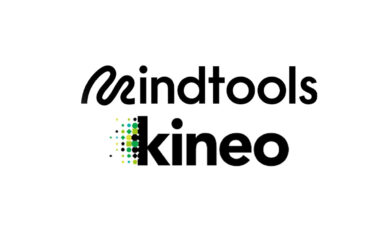 It was a privilege to talk one-on-one with Margaret Heffernan – like having my own personal TED Talk. I met the business leader and author while she was passing through London publicizing her new book, “Beyond Measure: The Big Impact of Small Changes,” which is based on an actual TED Talk that she gave.
It was a privilege to talk one-on-one with Margaret Heffernan – like having my own personal TED Talk. I met the business leader and author while she was passing through London publicizing her new book, “Beyond Measure: The Big Impact of Small Changes,” which is based on an actual TED Talk that she gave.
There were many memorable moments during our half-hour conversation, but one statement stood out in particular. She said she “would dare to suggest that social capital may be more productive than financial capital.”
Heffernan’s definition of social capital is “the trust, knowledge, reciprocity, and shared norms that create quality of life and make a group resilient.”
So, in other words, she believes that healthy relationships among colleagues can benefit a company more than money in the bank. It’s a radical view, but one she can back up.
“Social capital is something we have routinely undervalued. We’ve definitely underinvested in it,” she contends. “Many of the ways we run businesses specifically deplete social capital, and I think we need to sit up and pay attention to what it really can deliver. Fortunately, there are some fantastic studies that map this in very granular detail and that indicate that higher degrees of social capital lead to greater profits and higher degrees of employee engagement.”
In this audio clip from our Expert Interview podcast, she shares her observations on how social capital can be built.
Listen to the full Expert Interview in the Mind Tools Club ¦ Install Flash Player.
For Heffernan, there’s an additional factor that can compound the benefits of social capital: time.
“We’re really careful about how we spend money, but we’re really sloppy about how we spend time, which is interesting because you can make more money, but you can’t make more time,” she reflects.
She talks about an experiment that divided workplace tasks into two types of activity: “real work, which is head down, hard thinking, hard writing… work, which is mostly quiet.” And then “everything else, which is meetings, phone calls, email, texting, and all that jazz” – the kinds of activities that build social capital.
The experiment, led by a Harvard academic named Leslie Perlow, ring-fenced periods of the day for either “real work” or for interactive work. When you were doing one type of work, you weren’t allowed to do the other.
“Several fantastically interesting things came out of this,” Heffernan reports. “In one version of the experiment, productivity increased by 65 percent. Now I can’t think of anything you could do in most businesses that would improve productivity by 65 percent that didn’t cost a penny.
“People also became very much more helpful to each other. I think this is really profound: that once they knew the time they needed to do the quiet-time work was protected, they were much more generous the rest of the time. They felt less frantic and less harried and more able to think. And so they were willing to invest in, and get a return from, social capital in a way that, when all of this stuff is jumbled together, they felt they couldn’t afford.”
Heffernan admits that very few businesses would conduct an experiment as extreme as this. But she has seen companies benefit from adopting this idea on a smaller scale.
“I’ve run into a lot of companies that have rules; for example, no meetings before 10am. So if you have a big chunk of work you want to do, you might get in early and feel confident you weren’t going to get interrupted until 10.
“I know of other companies that have said, ‘No meetings on Friday afternoon,’ or, ‘No meetings past 4pm.’ So there are lots of different ways you can manage time. But I think the identification of two different kinds of work and synchronizing them for people is astonishingly powerful.”
So Heffernan is recommending a two-pronged approach: we should introduce rules that help build social capital, like eating together in a lunchroom, and we should also protect chunks of time for private work, when no such interaction is required or even allowed.
Would that work in your organization? Join the discussion below!





Comments
Brian Dawson says
10 years agoThe quick chat can replace meetings too. I use that when running teams and managing goals. We use a quick "stand-up" or chat to review progress and challenges.
Thanks for sharing.
Brian
Midgie Thompson says
10 years agoThanks for sharing your strategy of 'quick chats' instead of meetings which can be done standing up. So much quicker and helps people get to the point.
Helena says
10 years agoAlways best to raise something sooner rather than later, before it becomes a big thing!
Midgie Thompson says
10 years agoI agree with you Helena! I know when I have left things, the frustration and resentment have built up so that when I have raised the issue, the intensity was out of proportion to the event! So lesson learnt ... raise things earlier in a calmer manner!
virendra kumar says
10 years agoThis concept is something which is very important but neglected so thanks to Heffernan for bringing it to the forefront. Any company which wants to survive in this highly competitive environment is required to invest in social capital . People need to interact in the positive environment, unless they interact they will not develop mutual trust and social capital will be depleted . Well, quick chat has brought this point and that's great and thanks for this.
Charlie Swift says
10 years agoYes, Heffernan's point about "chat" is all the stuff that's not officially "work" but that brings many work-related benefits in the long run, so it needs to be valued too. - Charlie from Mind Tools
darlic says
7 years agowhat are good conversation starters?
Midgie Thompson says
7 years agoI think that how you start a quick chat depends on the the reason why you want to have a chat in the first instance. So, in my opinion, it will vary.